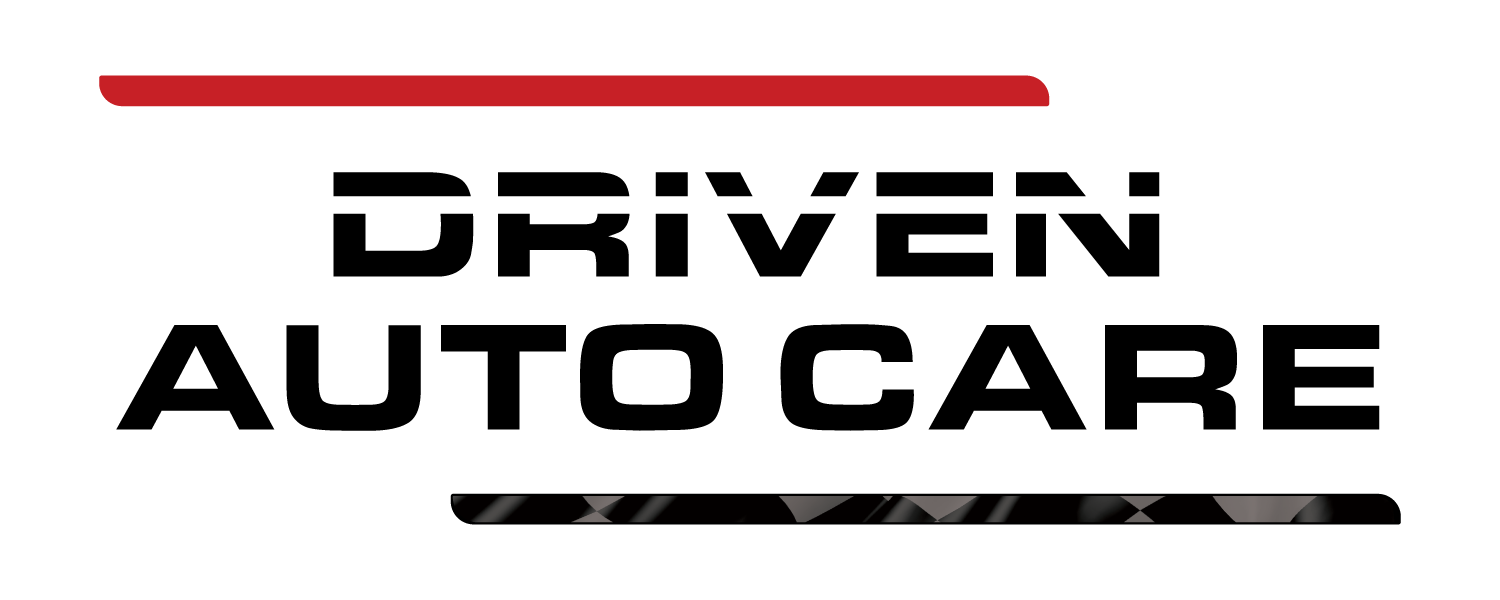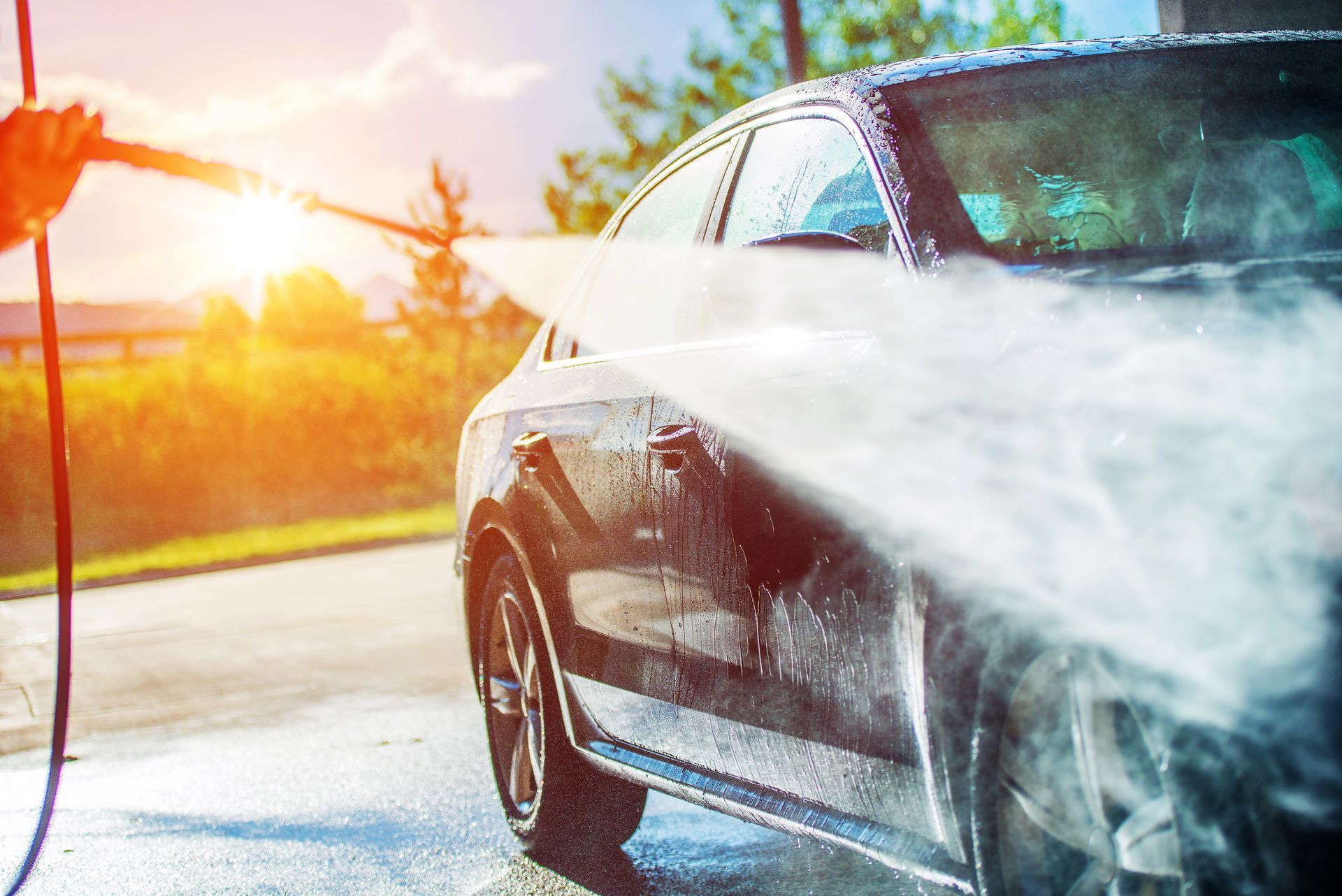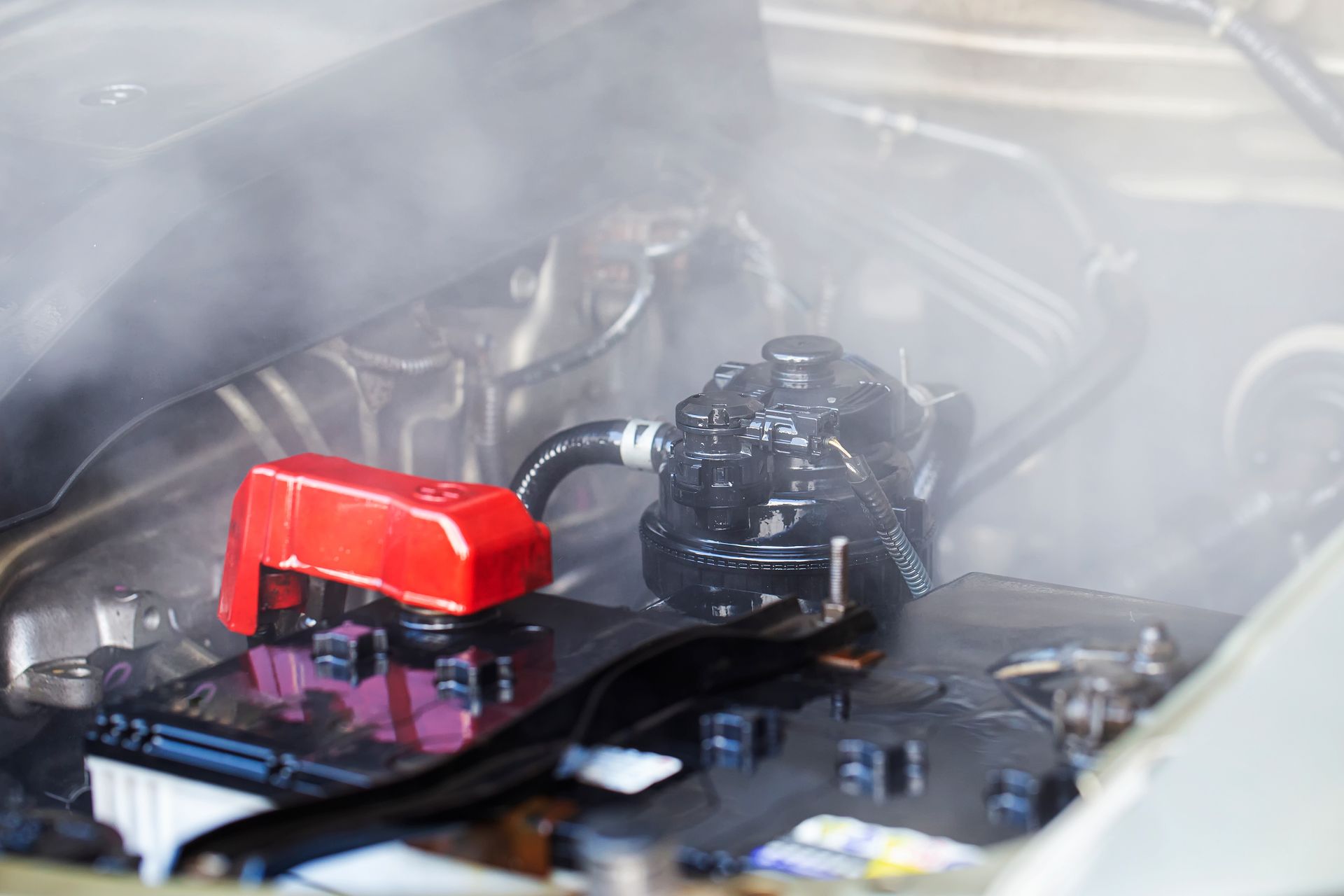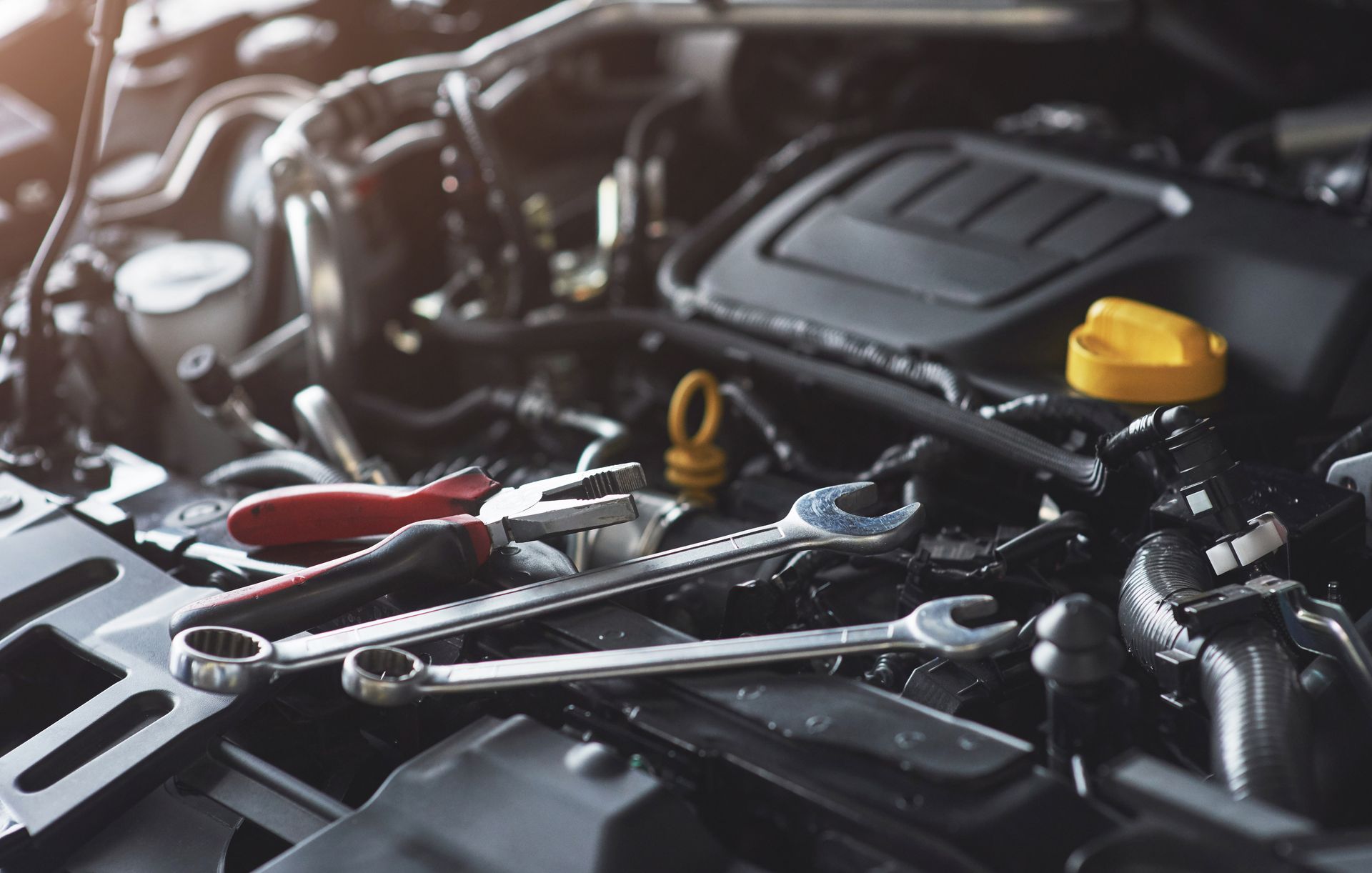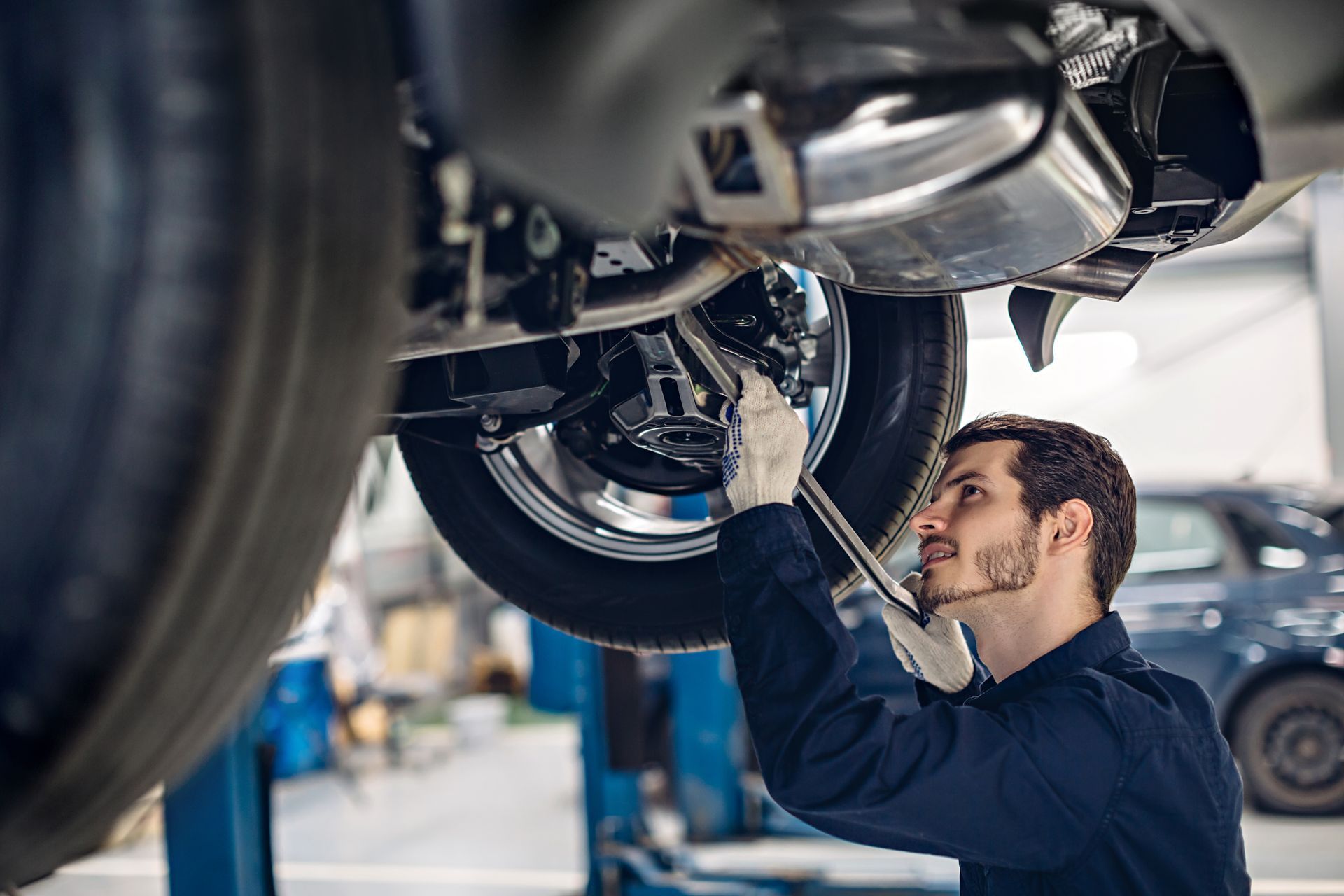Loading ...
Missing business hours data / Error occurred while getting the data.
Loading ...
Missing business hours data / Error occurred while getting the data.
Loading ...
Missing business hours data / Error occurred while getting the data.
Loading ...
Missing business hours data / Error occurred while getting the data.
Loading ...
Missing business hours data / Error occurred while getting the data.
Loading ...
Missing business hours data / Error occurred while getting the data.
What Are the Most Common Causes of Transmission Failure?
February 28, 2025
A failing transmission is every car owner’s worst nightmare. It’s one of the most expensive components to repair or replace, and when it starts to fail, your vehicle’s performance and safety take a serious hit. The transmission is shifting gears and transferring power from the engine to the wheels, so when something goes wrong, you’ll notice it immediately—whether it’s slipping gears, delayed acceleration, or complete loss of power.
Being aware of the most common causes of transmission issues can help you prevent breakdowns and keep your vehicle in good condition. Ignoring early warning signs can escalate a minor problem into a major breakdown, so here’s what you should look out for.
Neglecting Transmission Fluid Maintenance
One of the leading causes of transmission failure is low or contaminated transmission fluid. Transmission fluid acts as a lubricant, coolant, and hydraulic fluid, keeping everything running efficiently. Over time, this fluid breaks down, becomes dirty, or starts to leak, which can cause overheating, friction, and internal wear.
Signs your transmission fluid needs to be changed:
- Delayed or rough shifting
- Unusual noises, such as whining or grinding
- Burning smell from overheating fluid
- Dark or burnt-smelling fluid on the dipstick
Skipping routine fluid changes increases friction inside the transmission, leading to premature wear on essential parts like the clutch, bands, and gears. If the fluid level gets too low, your transmission won’t be able to function properly, and continued driving can result in total failure.
Overheating and Excessive Load on the Transmission
Heat is the enemy of any transmission. Excessive heat breaks down transmission fluid, causes metal components to expand and leads to overall system failure. Several factors can contribute to overheating, including:
- Frequent stop-and-go driving
- Towing heavy loads
- Driving in extreme temperatures
- Hard acceleration and sudden braking
If you regularly haul cargo or tow trailers, installing an auxiliary transmission cooler can help regulate temperatures and prevent excessive wear. Keeping an eye on transmission temperature and avoiding aggressive driving habits can significantly extend the life of your transmission.
Internal Wear and Tear Over Time
Like any mechanical system, transmissions don’t last forever. Over time, essential components—such as gears, clutches, and bands—wear down due to friction, heat, and repeated use. Automatic and manual transmissions both suffer from wear, but the symptoms may differ.
For automatic transmissions, common signs of wear include slipping gears, delayed engagement, and shuddering while shifting. In manual transmissions, worn-out clutch components can lead to grinding noises, difficulty shifting, and excessive clutch slippage.
Regular maintenance, including fluid changes and inspections, can help catch wear-related issues before they escalate into full-blown failure.
Ignoring Warning Signs and Delaying Repairs
One of the worst things you can do for your transmission is ignore the early signs of trouble. Many drivers notice symptoms like hesitation, slipping gears, or odd noises but put off getting their car checked. This delay often leads to more damage and a bigger repair bill down the line.
Common warning signs of transmission issues include:
- Difficulty shifting gears or slipping out of gear
- Unusual noises, such as whining, buzzing, or clunking
- Leaking transmission fluid under the vehicle
- Check engine light or transmission warning light
Addressing these issues early on can mean the difference between a minor repair and a complete transmission rebuild or replacement.
Driving Habits That Damage the Transmission
How you drive has a direct impact on transmission lifespan. Aggressive acceleration, sudden stops, and constant gear shifting put unnecessary stress on transmission components.
Some habits that can lead to premature wear include:
- Shifting from drive to reverse without stopping – This can damage the clutch and gears.
- Riding the brakes on hills – This forces the transmission to work harder than necessary.
- Not using the parking brake – Relying only on the transmission’s parking gear can put stress on internal components.
Being mindful of how you drive reduces strain on your transmission and helps keep it in top condition.
Is your transmission slipping or making strange noises? Don’t wait for a costly repair—visit
Driven Auto Care in Fremont, CA, for expert transmission diagnostics and maintenance. Call today!
Loading ...
Missing business hours data / Error occurred while getting the data.
Loading ...
Missing business hours data / Error occurred while getting the data.
Loading ...
Missing business hours data / Error occurred while getting the data.
Loading ...
Missing nap lines data / Error occured while getting the data.
